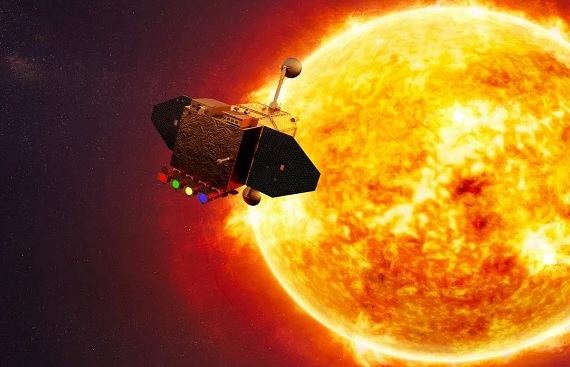CSIR-NIIST and VSSC Collaborate on Space Programme Materials
By
siliconindia | Wednesday, 20 March 2024, 10:30 Hrs

The CSIR-National Institute for Interdisciplinary Science and Technology (CSIR-NIIST) has recently inked a collaborative Memorandum of Understanding (MoU) with the Indian Space Research Organisation's Vikram Sarabhai Space Centre (VSSC) to bolster research and delivery of strategically-advanced materials for India’s space programme.
The exchange of the umbrella MoU was conducted between NIIST Director, Dr C Anandharamakrishnan, and VSSC Director, Dr S Unnikrishnan Nair, marking a significant step towards enhancing collaboration in space technology advancement.
This collaborative agreement aims to enable VSSC and CSIR-NIIST to identify key areas of collaboration, leading to the development and delivery of advanced materials such as engineered alloys, coatings, and functional materials critical for space programmes.
CSIR-NIIST, a premier interdisciplinary research laboratory under the Council of Scientific & Industrial Research (CSIR), boasts a rich history of pioneering research and development (R&D) in this domain, positioning it as a valuable resource for VSSC.
Dr S Somanath, Chairman of ISRO, emphasized the necessity of manufacturing high-end materials, electronics, and composites within India to achieve complete self-reliance in space research and technology. While India has made significant strides in indigenous materials for rockets and satellites, there is still room for growth in high-grade composite and electronics manufacturing, critical for global leadership in the space domain.
Upon the completion of the Chandrayaan and Aditya-L1 missions, ISRO is poised to develop strategically-important advanced materials and indigenous technologies for upcoming space projects, fostering India's self-reliance in this sector.
Dr C Anandharamakrishnan highlighted the significance of the MoU in providing strategic materials for ISRO projects, prioritized by NIIST. These materials will meet ISRO specifications, covering areas such as near net shaping, advanced manufacturing, smart coating, H2 gas storage, and materials for electronic and magnetic applications.
NIIST has invested in state-of-the-art facilities like pilot-scale squeeze casting plants and laser surface machining, enabling high-quality research and product development. Collaboration with VSSC has already yielded advancements in electronic substrates, iridium coatings, carbon fibre composites, and H2 storage vessels, reflecting a fruitful partnership between the two institutions in driving innovation and technology advancement in the space sector.
